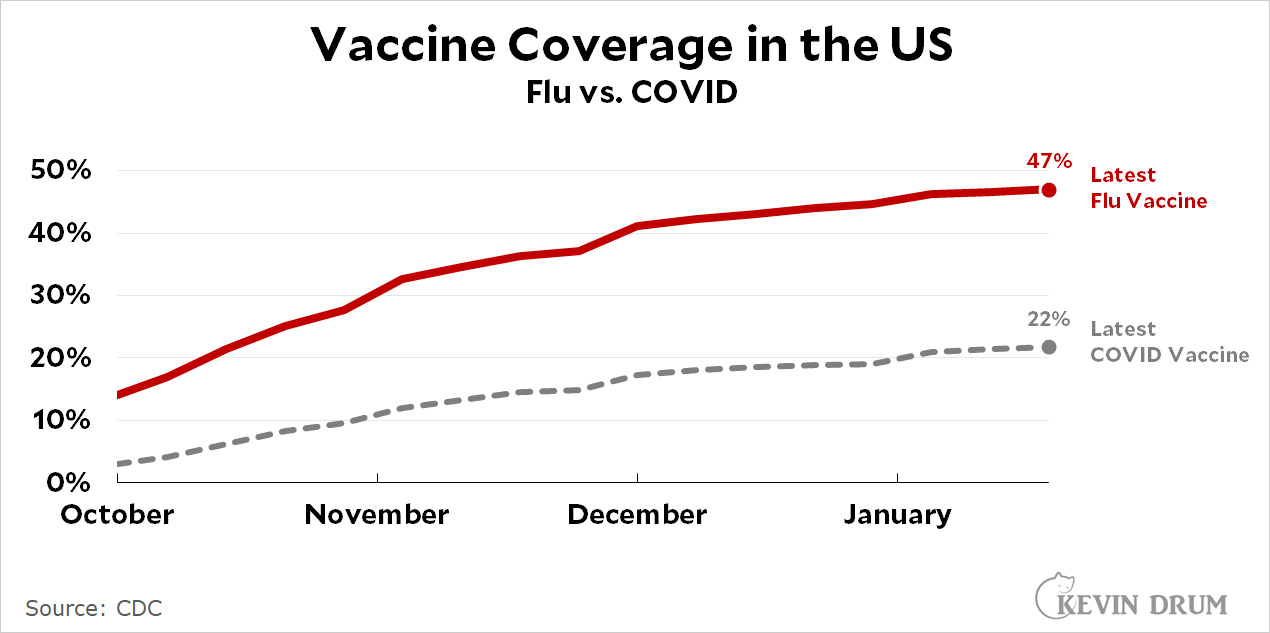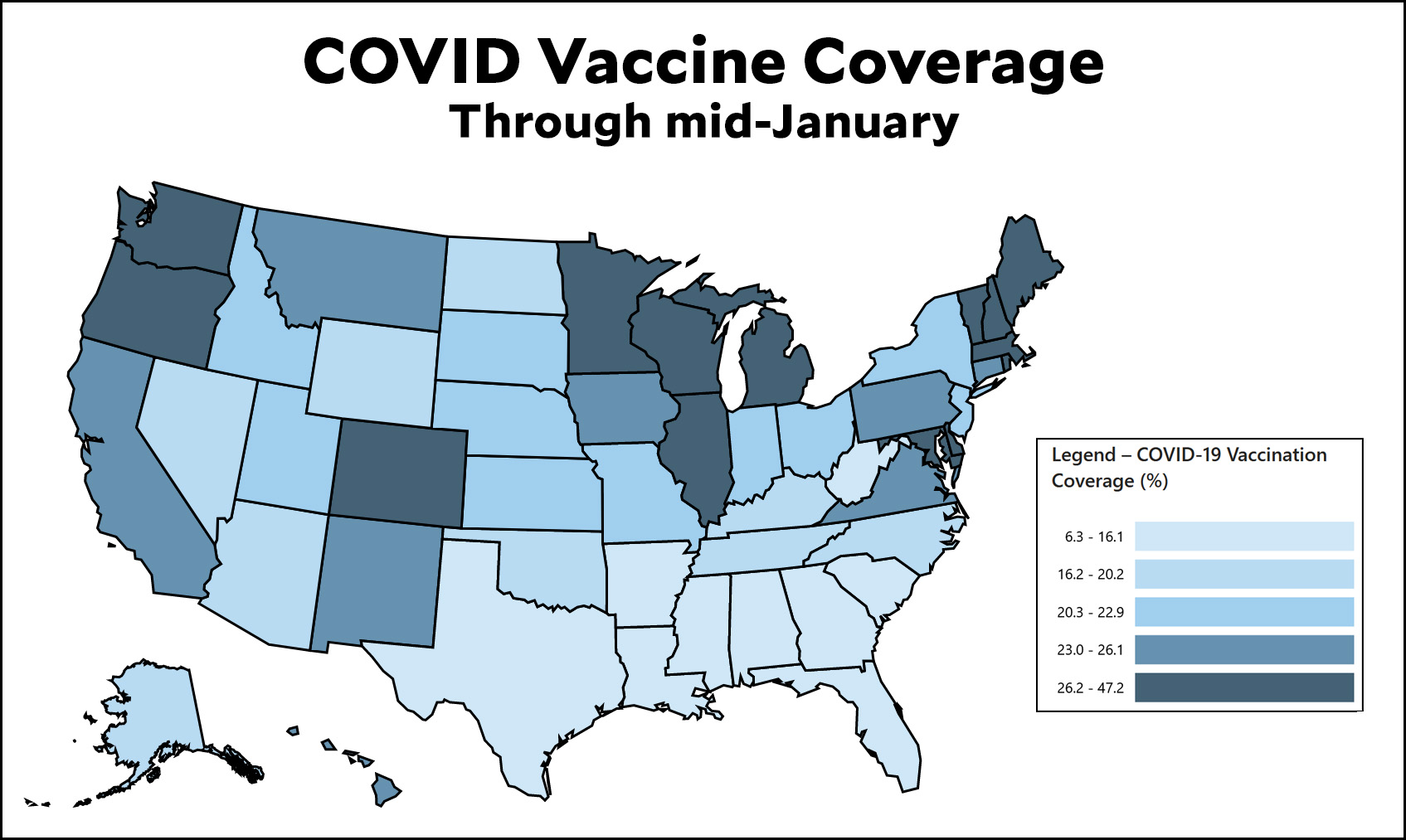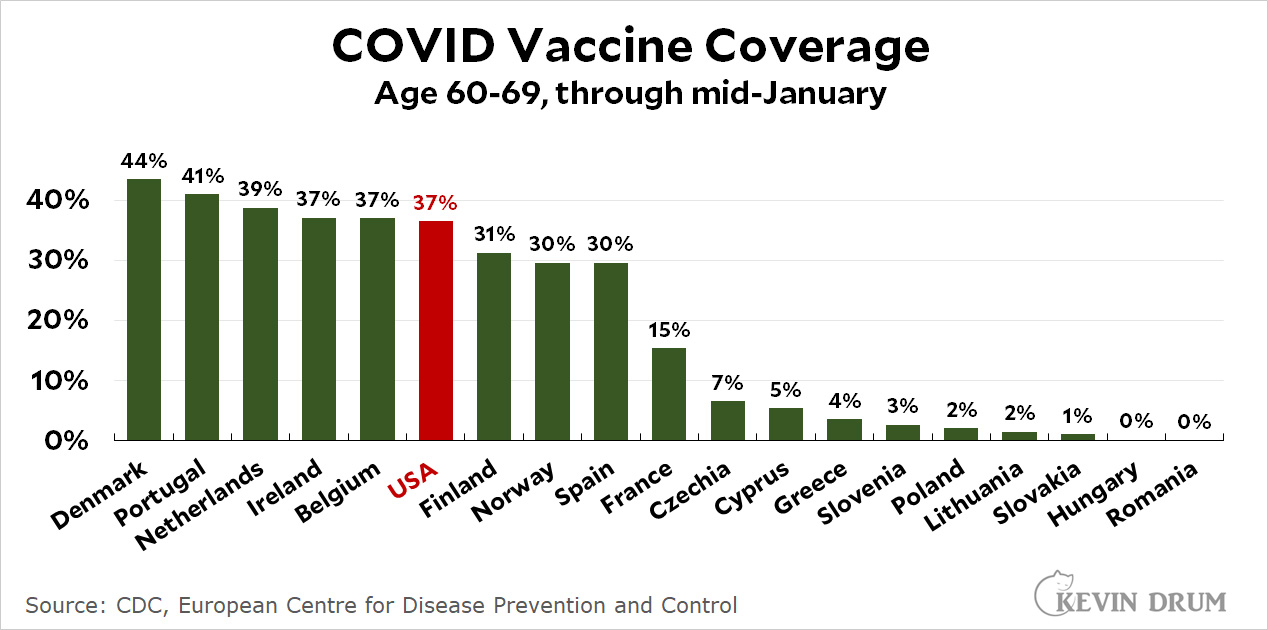Immigration, man. I don't know.
Right now the Senate is working on a compromise immigration bill, but as usual the immigration hawks are doing their best to sink it because they aren't getting 100% of what they want. Some of this is campaign cynicism, but not all of it. It's what they've done over and over. They really seem to have a death wish of some kind, preferring to keep the border porous rather than doing at least something to tighten it up.
For the rest of us, the problem is that immigration is a really complicated subject, which makes it genuinely hard to know what kind of effect a large bill might have. The new thing among Republicans is griping about Joe Biden's increased use of parole, which is understandable in a way since it lets hundreds of thousands of immigrants enter the country legally with just some paperwork. On the other hand, it also cuts down on border chaos since those hundreds of thousands aren't trying to brave the razor wire in Texas and sneak in.
But the really big difference between now and the past is asylum. Instead of merely trying to evade detection and capture, lots of migrants are now giving themselves up and applying for asylum. That creates a legal thicket, since if you ask for asylum the law says you have to be given a hearing. This is called affirmative asylum. Likewise, if you're in a deportation hearing and declare that you're seeking asylum, a judge has to hear your claim. This is called defensive asylum. Both have skyrocketed in recent years:
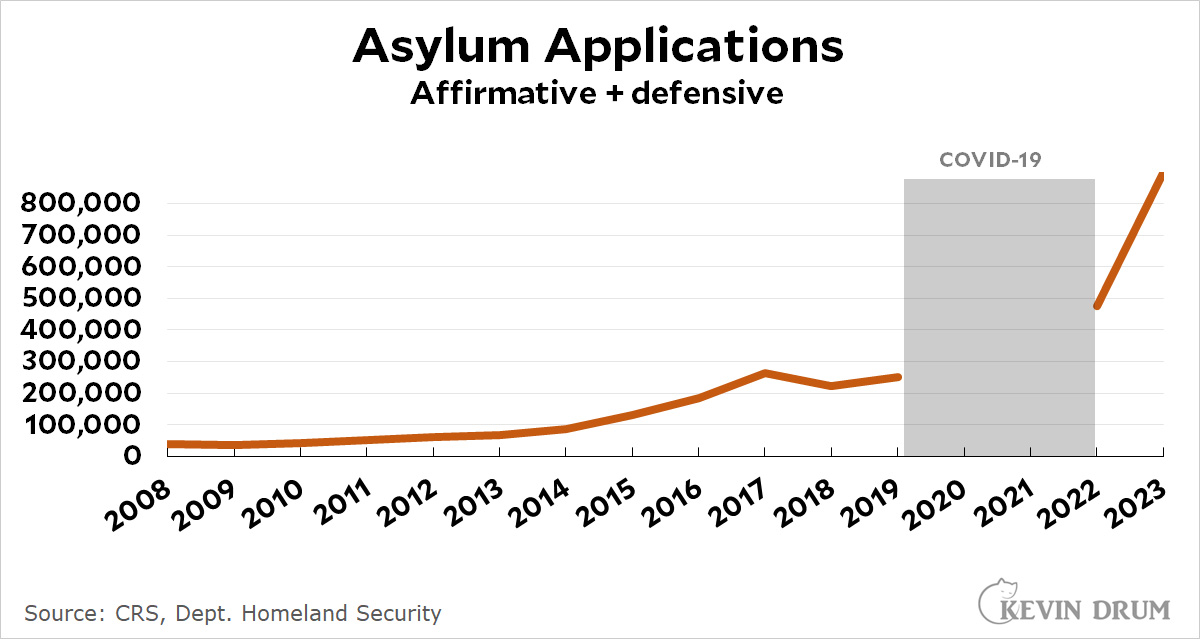 But there's more here than meets the eye. Asylum requests have surged, but ordinary old illegal immigration has too:
But there's more here than meets the eye. Asylum requests have surged, but ordinary old illegal immigration has too:
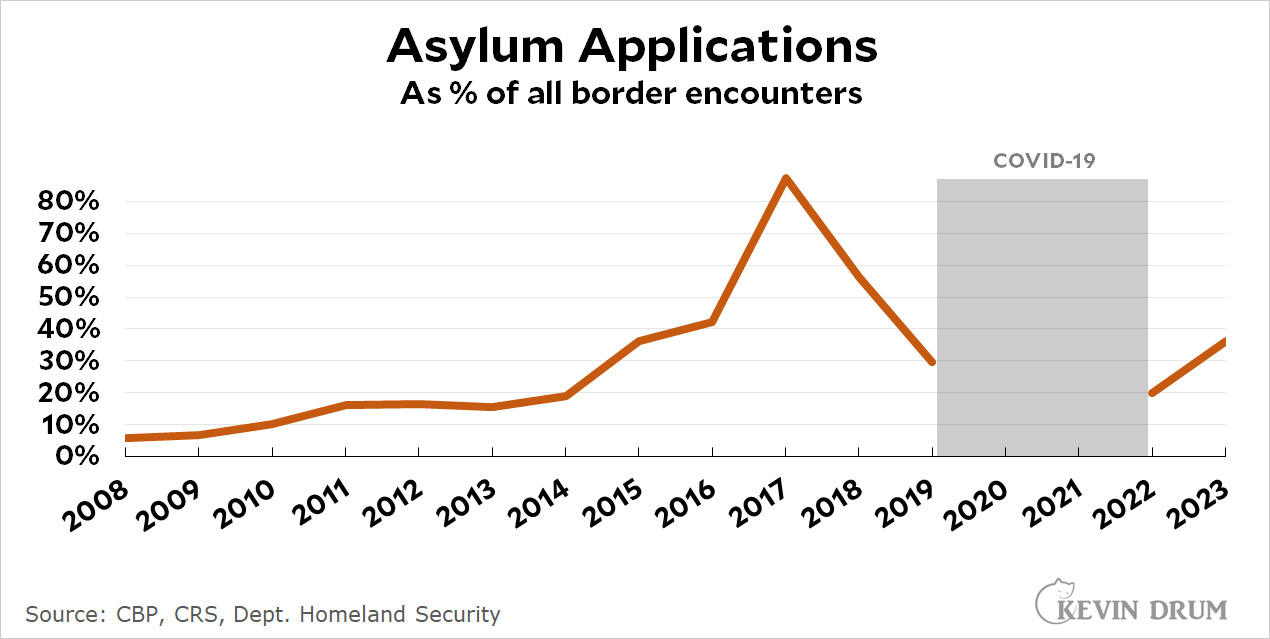 Asylum as a percentage of all illegal immigration peaked in 2017 under Donald Trump; bounced around during COVID; and then started to rise again under Biden. But in 2023 it was still only about a third of all immigration cases. Plain old economic migrants looking for jobs was much higher.
Asylum as a percentage of all illegal immigration peaked in 2017 under Donald Trump; bounced around during COVID; and then started to rise again under Biden. But in 2023 it was still only about a third of all immigration cases. Plain old economic migrants looking for jobs was much higher.
This combination calls for a combination of actions. Asylum seekers generally aren't successful, but nonetheless nearly half of asylum requests are approved. The Senate bill tightens up the requirements for asylum, which is something worth doing. The bigger problem, however, is that we have a huge backlog of asylum seekers roaming around the country waiting years for a hearing. The answer is more judges and more case officers, which the Senate legislation also provides.
At the same time, ordinary economic migrants could be most effectively dealt with via E-Verify. If you make it hard to hire undocumented workers, they'll stop coming. The problem is that even immigration hawks tend to downplay this because it might actually work, and that would piss off the business community that wants lots of cheap foreign labor.
The Senate bill would reportedly make asylum harder; increase the number of judges; reduce parole; and create a mechanism for quick expulsions. But those are quiet, technocratic changes. It doesn't include big, flashy stuff like building a wall; sending illegal immigrants back to Mexico without a hearing; or building mass detention camps. It would also increase legal immigration. As usual, hardliners are dead set against half a loaf, which likely means they'll once again get nothing. For 20 years they've gotten nothing. It's a mystery that they haven't gotten tired of this yet.
NOTE: Affirmative asylum applications for FY08-14 are here. Affirmative asylum applications for FY15-22 are here. Affirmative asylum applications for FY23 are here. Defensive asylum applications for FY08-23 are here.
 Next is loneliness among high school students over the past three decades up to 2012:
Next is loneliness among high school students over the past three decades up to 2012: Finally, here is Gallup's survey of overall loneliness since the pandemic:
Finally, here is Gallup's survey of overall loneliness since the pandemic: Based on these numbers, the best guess is that loneliness among the elderly has been flat for a long time and loneliness among everyone else has been going down in recent years.
Based on these numbers, the best guess is that loneliness among the elderly has been flat for a long time and loneliness among everyone else has been going down in recent years.
 Red dots are bad (more than one meter per year of water loss). This is from a recent paper that
Red dots are bad (more than one meter per year of water loss). This is from a recent paper that 




